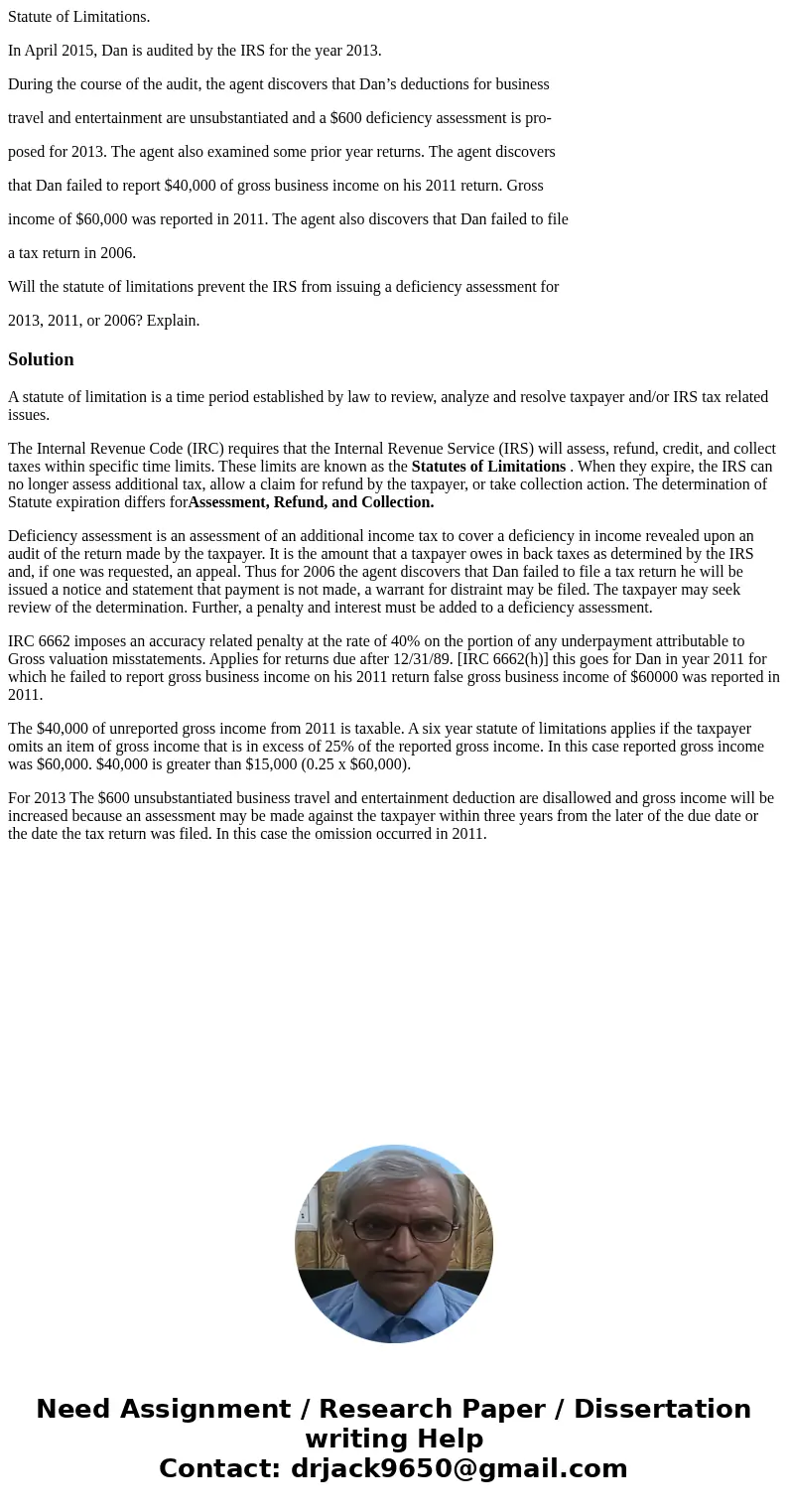Statute of Limitations In April 2015 Dan is audited by the I
Statute of Limitations.
In April 2015, Dan is audited by the IRS for the year 2013.
During the course of the audit, the agent discovers that Dan’s deductions for business
travel and entertainment are unsubstantiated and a $600 deficiency assessment is pro-
posed for 2013. The agent also examined some prior year returns. The agent discovers
that Dan failed to report $40,000 of gross business income on his 2011 return. Gross
income of $60,000 was reported in 2011. The agent also discovers that Dan failed to file
a tax return in 2006.
Will the statute of limitations prevent the IRS from issuing a deficiency assessment for
2013, 2011, or 2006? Explain.
Solution
A statute of limitation is a time period established by law to review, analyze and resolve taxpayer and/or IRS tax related issues.
The Internal Revenue Code (IRC) requires that the Internal Revenue Service (IRS) will assess, refund, credit, and collect taxes within specific time limits. These limits are known as the Statutes of Limitations . When they expire, the IRS can no longer assess additional tax, allow a claim for refund by the taxpayer, or take collection action. The determination of Statute expiration differs forAssessment, Refund, and Collection.
Deficiency assessment is an assessment of an additional income tax to cover a deficiency in income revealed upon an audit of the return made by the taxpayer. It is the amount that a taxpayer owes in back taxes as determined by the IRS and, if one was requested, an appeal. Thus for 2006 the agent discovers that Dan failed to file a tax return he will be issued a notice and statement that payment is not made, a warrant for distraint may be filed. The taxpayer may seek review of the determination. Further, a penalty and interest must be added to a deficiency assessment.
IRC 6662 imposes an accuracy related penalty at the rate of 40% on the portion of any underpayment attributable to Gross valuation misstatements. Applies for returns due after 12/31/89. [IRC 6662(h)] this goes for Dan in year 2011 for which he failed to report gross business income on his 2011 return false gross business income of $60000 was reported in 2011.
The $40,000 of unreported gross income from 2011 is taxable. A six year statute of limitations applies if the taxpayer omits an item of gross income that is in excess of 25% of the reported gross income. In this case reported gross income was $60,000. $40,000 is greater than $15,000 (0.25 x $60,000).
For 2013 The $600 unsubstantiated business travel and entertainment deduction are disallowed and gross income will be increased because an assessment may be made against the taxpayer within three years from the later of the due date or the date the tax return was filed. In this case the omission occurred in 2011.

 Homework Sourse
Homework Sourse